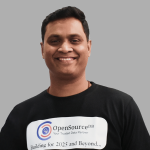Logical replication has evolved into a foundational capability for modern PostgreSQL deployments, enabling real-time data synchronization, partial replication. What began as a low-level decoding API in PostgreSQL 9.4 has now matured into a powerful feature, allowing for fine-grained control over what gets replicated and where.
In this talk, we’ll trace the journey of logical decoding and replication in PostgreSQL, from its early adoption through extensions like pglogical, to the robust native features introduced in recent PostgreSQL releases. We’ll dive into how these capabilities have empowered change data capture (CDC), zero-downtime migrations, and real-time analytics pipelines.
We’ll also explore how innovations in the ecosystem, particularly the work of pgEdge Spock and AWS pgactive are shaping the future of distributed PostgreSQL.
Key takeaways:
– Understand the architecture and internals of logical decoding
– Compare native and extension-based logical replication
– Discover what’s next: DDL replication, performance tuning, and multi-master replication
– Learn how extensions from pgEdge and AWS are extending PostgreSQL for a globally distributed, logically replicated future
The times of “=” are definitely over. The modern world requires more than just simple string comparison but flexible and intelligent means to search for data. PostgreSQL offers various options to make intelligence smarter. From simple nearest neigbor search (KNN) to intelligent AI driven mechanisms provided in combination with pgvector – a lot is possible.
During this presentation you will learn about those key technologies and understand similarity as well as semantic search in more detail.
In PostgreSQL, managing schema changes without downtime can be a challenging task. Table-level locks, which control access during Data Definition Language (DDL) operations like ALTER or DROP TABLE, can result in unintended application slowdowns or even service interruptions when not fully understood. This talk will provide a comprehensive dive into table-level locking and lock queueing in PostgreSQL, helping attendees gain the insights they need to perform efficient schema changes.
We’ll start by explaining the various types of table-level locks in PostgreSQL such as Access Share, Exclusive, and Access Exclusive and how they are automatically managed during common DDL operations. Then, we’ll break down lock queuing: how PostgreSQL organizes lock requests, what happens when transactions wait for locks, and how deadlocks can arise in complex environments.
Next, we’ll focus on practical approaches to managing table-level locks for near-zero downtime. Attendees will learn techniques to minimize locking impact, including understanding lock conflicts, using online schema migration patterns, and identifying lock-heavy queries. We’ll introduce open-source tools like pgroll, which utilizes the expand/contract pattern to make schema changes in small, lock-free steps.
By the end of this session, attendees will be equipped with practical strategies and knowledge to control lock behavior during schema changes, ensuring data integrity and reducing operational disruptions. This talk will provide the tools needed to manage PostgreSQL schema changes with confidence and minimal impact on production environments.
CloudNativePG brings a native, Kubernetes-friendly approach to managing PostgreSQL databases in cloud-native environments, which fills a critical gap in the CNCF ecosystem. CloudNativePG offers seamless integration with Kubernetes to manage its lifecycle, including high availability, disaster recovery, and backup/restore functionalities.
The talk is an introduction on features and behaviours of CloudNativePG, the Kubernetes operator that covers the full lifecycle of a highly available PostgreSQL database cluster with a primary/standby architecture, using native streaming replication.
Discussed topics are:
– the operator CRD
– operand images and extensibility
– suggested architectures
– deployment (helm, manifest application…)
– monitoring (Prometheus metrics)
– most recent features, like volume snapshot backups/restore and declarative databases, publicatoins, subscriptions
Website: https://cloudnative-pg.io/
Discover how Redgate is extending its trusted, end-to-end database solutions to support PostgreSQL teams. In this keynote, we’ll introduce Redgate and highlight our newest PostgreSQL-focused solutions that help development, operations, and data teams streamline workflows, improve performance, and safeguard business-critical data.
Learn how solutions like Redgate Monitor, pgNow, Flyway, Redgate Test Data Manager, and pgCompare come together to support everything from monitoring and version control to test data management and schema comparison. Whether you’re scaling PostgreSQL adoption or looking to increase efficiency across your estate, Redgate makes it easier to deliver reliable, high-quality software—faster.
When a critical production database can’t service to majority of its users we can call this a “crisis”. These problems can show up in different forms like data corruptions, data loss arising from user fault, after change issues (upgrade, patch, migration etc.), hardware problems, load issues and more. It’s crucial to follow right direction for the solution when “downtime” starts ticking. While supporting big customer systems for many years, I experienced these “crisis” at first hand and prepared this presentation for PostgreSQL DBAs to get ready for these unwanted but possible cases.
This session will cover how to overcome the crisis situations with both technical and non-technical aspects just like behavioral approach, problem solving diplomacy, crisis management rules etc. We will start with example scenarios to understand and accept the risk in every condition. Then, we will cover how to prepare organizationally (preparing crisis management plan and technical procedures, performing periodic test etc.) and technically (best practices for scenarios like database backup/restore/recovery, failover, database upgrade/migration). At the last part there will be golden rules to follow, extracted from tens of real-life lessons learned.
People attending this session will enhance their readiness for any possible crisis situations on their database systems. This readiness must include both organizational and technical considerations and both sides will be explained by blending them.
Indices are the backbone of efficient data retrieval in PostgreSQL, but their impact on performance is a double-edged sword.
While they accelerate read operations, they can introduce overhead to write operations and consume valuable storage.
This talk delves into the nuances of PostgreSQL index performance, providing practical insights and actionable strategies for optimizing your database.
Whether you’re a seasoned DBA or a developer working with PostgreSQL, this session will equip you with the knowledge and tools to effectively manage indices and maximize the performance of your database tables.
This talk explores a new way to scale read-heavy PostgreSQL workloads through SQL query caching and incremental view maintenance (IVM). Attendees will learn how our dataflow-based engine enables low-latency reads using partial materialization, without modifying application code. Real-world examples and architectural deep-dives illustrate how teams can achieve significant performance gains with minimal operational overhead.
PostgreSQL is notorious for having a painful upgrade process. So much so that many users push PostgreSQL way past the end-of-life date, but it doesn’t have to be this way. In this talk, I will take a tour through tools and tricks that a modern DBA can use to get PostgreSQL clusters upgraded with a minimum of hassle. What you need to look out for to ensure your upgrades go smooth like butter. With the correct procedures, upgrading your PostgreSQL cluster can be something to look forward to, rather than dreading it.









